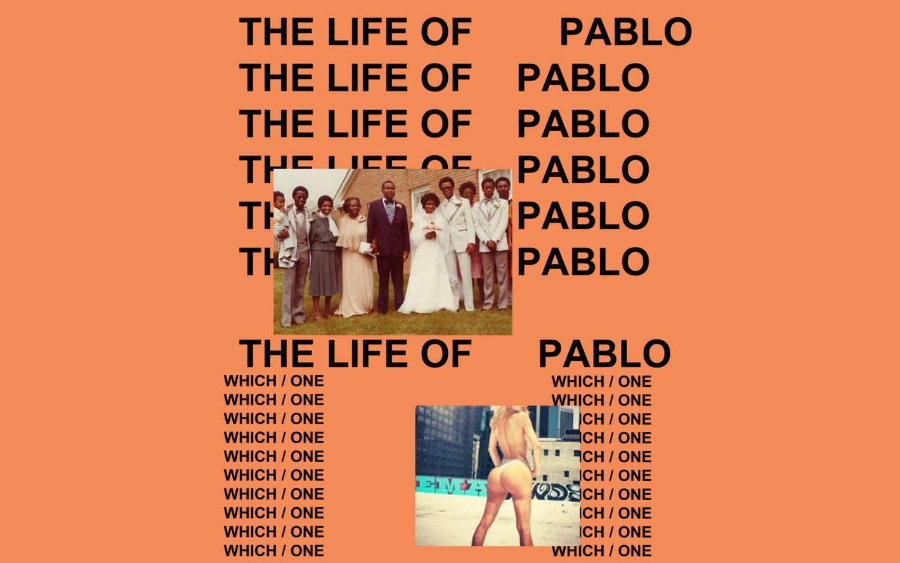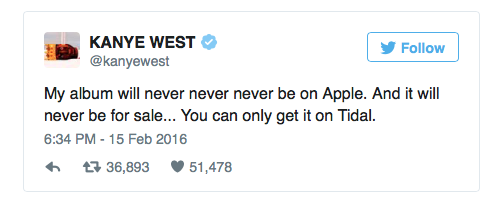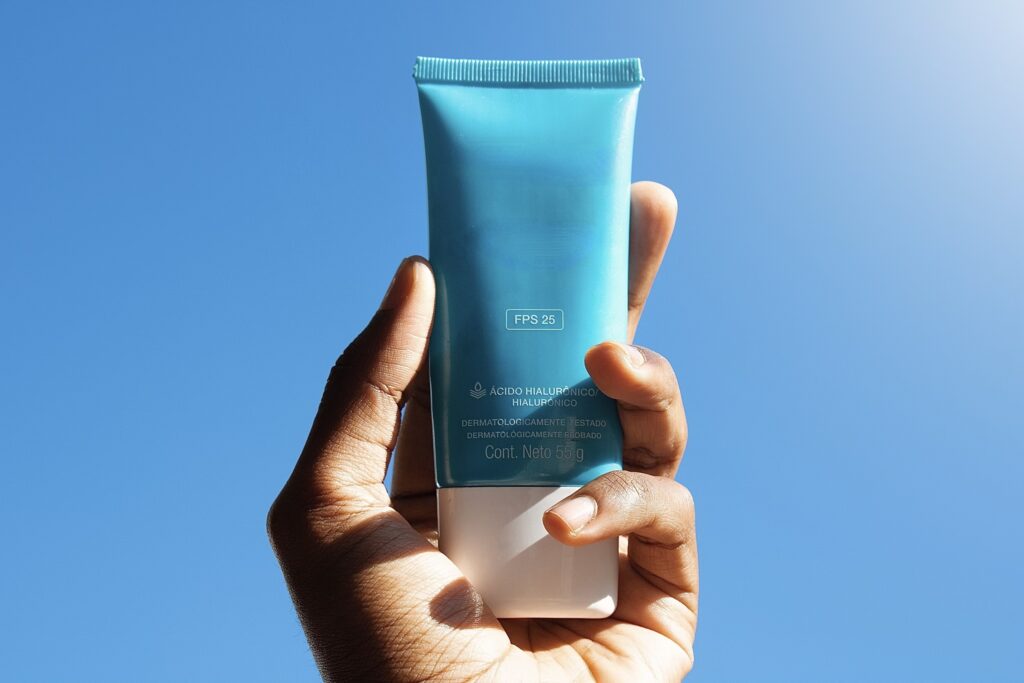
image: TLOP
Kanye West and Tidal cannot catch a break. After Tidal found itself at the center of a Norwegian investigation last month for allegedly “manipulating streaming numbers” by hundreds of millions for Kanye West’s The Life of Pablo album and then paying the rapper’s label $2.4 million as a result, West and Tidal have been handed a partial loss in the latest round of a multi-million dollar lawsuit alleging that they “fraudulently induced consumers to subscribe to Tidal” under the guise that the album would only be made available on that platform.
According to the lawsuit that Justin Baker-Rhett filed in the U.S. District Court for the Northern District of California in April 2016 (which was transferred to the U.S. District Court for the Southern District of New York in July 2016), West fraudulently promised fans – via Twitter – that his album, The Life of Pablo, would only be available on Tidal, the music streaming service owned by Jay Z. As a result, “consumers were uniformly tricked into handing over their private data and credit card information by a singular mistruth.”

Mr. Baker-Rhett alleges in the $84 million lawsuit that despite statements from Tidal and West that the album was exclusive to Tidal and that it would never be available elsewhere, the album was subsequently released for free on Apple Music and Spotify.
To make matters worse, Baker-Rhett argues that neither West nor Tidal “ever intended The Life of Pablo to run exclusively on the Tidal platform.” Instead, he claims that they made such a warranty “knowing that Tidal was in trouble but not wanting to invest their own money to save the company” and thereby “fraudulently induced millions of American consumers into paying for Tidal’s rescue.”
Well, as of this past week, Judge Gregory Woods handed the rapper and Tidal a loss. In an 18-page decision, Judge Woods dismissed a few of Baker-Rhett’s claims, namely, those that allege that West and Tidal ran afoul of New York state-specific consumer laws, holding that he lacks of standing. He did, however, uphold the fraudulent inducement and unjust enrichment claims, despite West’s claims that the tweet is true, as the version of the album made subsequently available differs from the one initially posted to Tidal thanks to “newly updated, remixed and remastered version[s]” of songs.
Judge Woods shot down West’s objection, stating, “Mr. West’s argument is tenuous, and certainly does not pass muster in the context of a motion to dismiss … West’s tweet referenced ‘my album’ and did not commit that a particular version, or mix, or master of his album would not be on Apple— his commitment was that the ‘album,’ ‘it,’ would not be. And the album was made available on Apple Music shortly after the Tweet.”
This means that save for a settlement (which if past cases are any indication just might happen before Kanye West sits for a deposition), the case must go to trial, despite Tidal and West’s 2017 motion asking the court to dismiss the case in its entirely.
UPDATED (August 23, 2018): Named plaintiff Justin Baker-Rhett has asked the court to certify his proposed class action lawsuit to enable other “similarly situated” individuals – i.e., “All persons in the United States who both (1) subscribed to the Tidal streaming service between February 15, 2016 and April 1, 2016, and (2) streamed any track from The Life of Pablo within the first 24 hours after initiating his or her subscription” – to join in the case and ultimately, any monetary compensation.
As of now, the court must decide whether Baker-Rhett’s counsel adequately defined the class of potential plaintiffs, and showed that there are enough potential class members for a class action to be warranted, that they share a common question of law and fact, that Baker-Rhett’s claims or defenses are typical of those of everyone else in the class, and that Baker-Rhett fairly and adequately represents the interests of the class member.
One thing seems to be for sure: Given that Tidal’s subscriber base tripled from 1 million to 3 million in the 6 weeks following West’s tweet, the pool of potential plaintiffs is likely large enough to warrant class action status.
* The case is Justin Baker-Rhett v. Aspiro, AB, et al, 1:16-cv-5801-GHW (SDNY).














